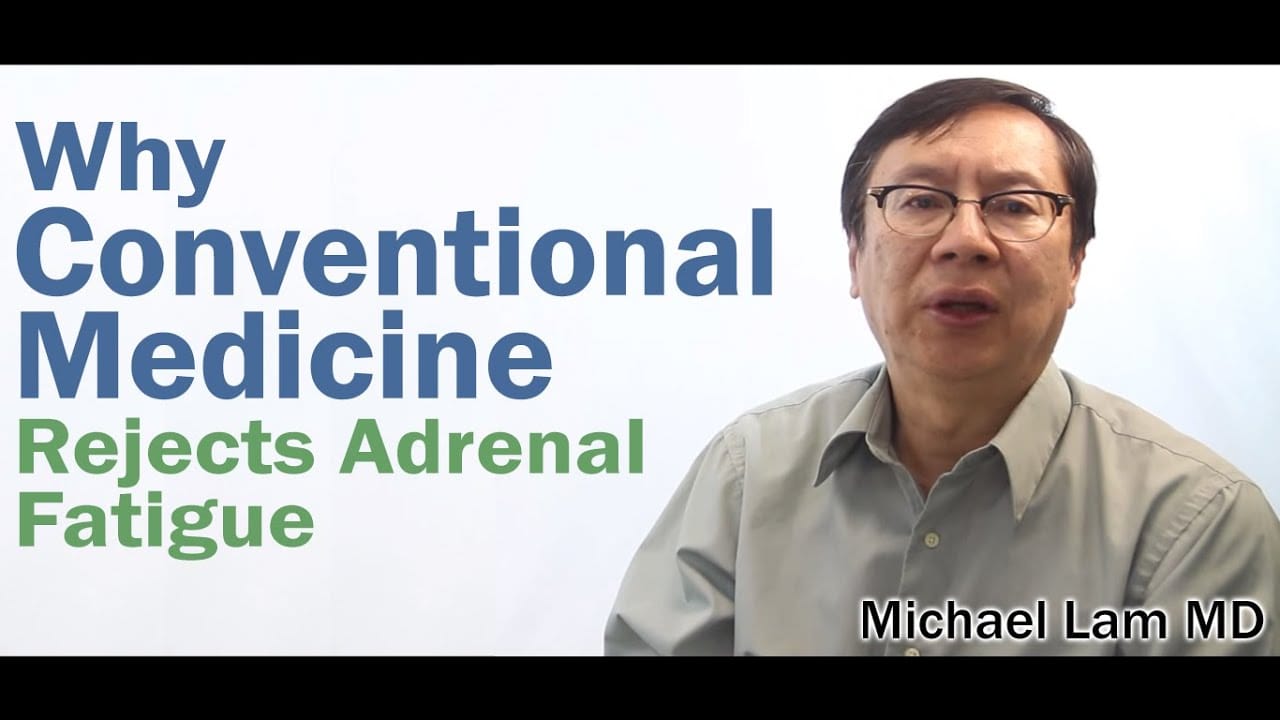
 Adrenal Fatigue is a term applied to a collection of nonspecific symptoms such as fatigue, anxiety, joint pain, insomnia, hypoglycemia, depression, nervousness, sleep disturbances and digestive problems presenting in an otherwise healthy person with normal laboratory test results. Over 50 percent of adults suffer from Adrenal Fatigue at one point or another in their adult life. Most recover without knowing they had Adrenal Fatigue Syndrome, but a minority fail to recover, and a smaller number continue to only get worse. In its worst form, a person can be bedridden and incapacitated. The term often shows up in popular health books and on alternative medicine websites. An Internet search of the words "Adrenal Fatigue" yield over 2.4 million results, with search threads ranging from the Mayo Clinic to the Hormone Foundation and alternative health forums. What is clear is that to the vast majority of conventional medicine physicians, other than the forward-thinking ones, this condition does not exist and is not real. Yet to the vast majority of sufferers, this condition is very real and indeed, can be quite debilitating.
Adrenal Fatigue is a term applied to a collection of nonspecific symptoms such as fatigue, anxiety, joint pain, insomnia, hypoglycemia, depression, nervousness, sleep disturbances and digestive problems presenting in an otherwise healthy person with normal laboratory test results. Over 50 percent of adults suffer from Adrenal Fatigue at one point or another in their adult life. Most recover without knowing they had Adrenal Fatigue Syndrome, but a minority fail to recover, and a smaller number continue to only get worse. In its worst form, a person can be bedridden and incapacitated. The term often shows up in popular health books and on alternative medicine websites. An Internet search of the words "Adrenal Fatigue" yield over 2.4 million results, with search threads ranging from the Mayo Clinic to the Hormone Foundation and alternative health forums. What is clear is that to the vast majority of conventional medicine physicians, other than the forward-thinking ones, this condition does not exist and is not real. Yet to the vast majority of sufferers, this condition is very real and indeed, can be quite debilitating.
How is it possible that such a widespread dysfunction that generates so much ongoing interest among the public be rebuked by many of the world’s most brilliant and well-trained physicians? How does one explain the cognitive dissonance among most conventional medicine physicians’ assessment that Adrenal Fatigue does not exist, while the real experience of many sufferers is that of incapacitation and the inability to hold down a job?
Eighty percent of the most common causes of death in age-related illness results from cardiovascular disease, stroke, and cancer. These degenerative diseases gain a head start years before outward symptoms are detectable. For example, the average cancer takes over a decade to develop before a lump is felt or clinically detectable.
A lifetime of poor nutrition, stress, and environmental pollution erodes cellular protection, repair, and replacement—the very foundation of health. While outwardly one may appear normal and healthy by traditional standards, inward cellular damage and insult is taking place daily from pollution, stress, and the cellular oxidative process, coupled with endogenous and exogenous free radical attacks from a young age. By age 50, free radical attacks damage as much as 30 percent of our cellular protein. Fortunately, the body has endogenous self-repair mechanisms. However, this repair mechanism is not 100 percent efficient. Damage that escaped repair can lead to cellular mutation and ultimately organ dysfunction. Adrenal Fatigue may be the result of such continuous insult over time.
Modern laboratory and detection methods are far from perfect and lack the sensitivity to pick up signs early enough to warn us of impending danger. Modern medicine with its many tests are of tremendous value when symptoms turn catastrophic and gross system failure is obvious—when chest pain occurs, or brain function fails, or a lump appears.  Until then, normal current testing results simply reinforce our denial that most adults who appear healthy have, in reality, already entered into a sub-clinical state of aging with multiple diseases well in place but undetectable by physical examination or laboratory tests. These progressive sub-clinical disease states include borderline hypertension, sub-optimal adrenal function and hormonal imbalance, reduced liver detoxification capacity, reduced gastric assimilation potential, metabolic imbalances, and sugar intolerance. They are mostly foreign to conventionally trained western physicians who are taught to think in terms of demonstrable pathology to define the disease.
Until then, normal current testing results simply reinforce our denial that most adults who appear healthy have, in reality, already entered into a sub-clinical state of aging with multiple diseases well in place but undetectable by physical examination or laboratory tests. These progressive sub-clinical disease states include borderline hypertension, sub-optimal adrenal function and hormonal imbalance, reduced liver detoxification capacity, reduced gastric assimilation potential, metabolic imbalances, and sugar intolerance. They are mostly foreign to conventionally trained western physicians who are taught to think in terms of demonstrable pathology to define the disease.
It is not unusual to be seriously ill and symptom-free yet have normal laboratory values. Autopsy studies of those who died of sudden death from cardiac arrest have repeatedly shown a large proportion with clean coronary vessels and perfectly normal laboratory tests.
Health, in reality, comprises a full spectrum of wellness; a continuum that ranges from severe sickness at one end to optimum health at the other end. Each chronic disease exhibits a similar continuum. Conventional medicine tends to label a person as sick once they cross the threshold of normal laboratory reference based on data derived from general population statistics. Until one crosses the threshold, they are considered normal. This is an all-or-nothing approach. The body is not a light switch that flips from normal one day to become abnormal the next. Unfortunately, all that is in between is universally ignored. The advancement of preventive medicine as a medical specialty strives to arrest disease at its sub-clinical state and address these sub-clinical conditions well before they become serious.
Conventional medicine and its view of Adrenal Fatigue as largely a myth has foundational validity. From their perspective, there is only one disease state when it comes to adrenal weakness, and it is called adrenal insufficiency, or Addison’s disease.
Both conventional medicine and natural medicine physicians recognize adrenal insufficiency as a real disease diagnosed through blood tests. Addison’s disease afflicts 4 out of 100,000 people. Life-long steroid replacement therapy is usually required. Diagnosis is relatively straight forward with well-defined protocols.
Adrenal Fatigue is advanced by natural medicine professionals to denote a mild form of adrenal insufficiency where regular laboratory tests are normal but a person is symptomatic. It is also called by a variety of other names, including mild non-Addison’s adrenal insufficiency.
Modern medical practice relies heavily on laboratory tests and other diagnostic procedures in mechanized fashion to confirm the presence or absence of disease. Any other approach is considered unscientific. The importance of taking a detailed history and recognizing the uniqueness of each body as the key foundation of arriving at any diagnosis is quickly becoming a lost art, replaced by the over-reliance on laboratory tests. This works rather well for acute illness, because the clinical presentation is dramatic. For chronic conditions, this laboratory reliance model is less than ideal. Most, if not all, chronic conditions evolve through a sub-clinical state as mentioned above. In this state, symptoms are present but all relevant laboratory results are within normal limits.
 At best, laboratory results serve to help physicians assess the clinical states. It was never designed to replace a detailed history and good clinical skills. Within the current medical framework of thinking, normal simply means the absence of detectable illness as evidenced by laboratory test results within a statistical range defined mathematically. The threshold of what is considered normal or abnormal is determined by man. It is therefore an imperfect science.
At best, laboratory results serve to help physicians assess the clinical states. It was never designed to replace a detailed history and good clinical skills. Within the current medical framework of thinking, normal simply means the absence of detectable illness as evidenced by laboratory test results within a statistical range defined mathematically. The threshold of what is considered normal or abnormal is determined by man. It is therefore an imperfect science.
This approach to medicine is grossly incomplete in chronic conditions, to say the least. The problem is obvious. Sole reliance on laboratory testing as the definitive diagnostic tool is a flawed model. On one hand, many are not well but have normal test results. They are told nothing is wrong and sent home. On the other hand, by the time testing detects illness it may be too late. The result is the same: patients suffer unnecessarily.
Let us examine the foundational premise advanced by naturally oriented physicians to support their thesis that Adrenal Fatigue is real.
The adrenal glands, like any other organ system, are subject to dysfunction due to intrinsic weakness or external insult anytime during our life. It secretes over fifty hormones and is largely responsible for helping the body deal with stress. Most of these hormones decrease after reaching a peak in our 20s. The gradual decline in hormonal health is first unnoticeable, especially in the adrenal glands. According to natural medicine physicians, fatigue is usually slight in the early stages of Adrenal Fatigue. A good night’s rest or a cup of coffee is usually all that is required to regain lost energy.
If physical or emotional stress remains high, and the body is not allowed rest and recuperation, the pace of adrenal deterioration picks up. Sagging skin, irregular menstrual cycles, low libido, hypoglycemia, low blood pressure, insomnia, and lethargy are signs of internal systems breakdown at the sub-clinical level. The gradual decline of thyroid hormone leads to hypothyroidism; dysfunction in sugar regulatory hormones, such as insulin, leads to metabolic imbalance; imbalanced estrogen leads to a myriad of hormonally sensitive conditions including endometriosis, PCOS & fibrocystic breast disease; decline of cortisol leads to low immune function and frequent illness, worsening hypoglycemia, low blood pressure, insomnia, fatigue, and anxiety.
Because the adrenal glands constitute one of the main hormonal regulation centers of the body, it comes as no surprise that those with intrinsic adrenal weakness are most affected. Those who have severe childhood emotional trauma, excessive physical exertion, major surgery, and repeated pregnancies are particularly vulnerable.
Every chronic illness including hypertension, hypothyroidism, and diabetes progresses through a continuum from normal to severe in a graded state over time. Based on common sense alone, mild dysfunction of the adrenal glands is likely to exist regardless of the name it is given.
It is important to note, however, that while Adrenal Fatigue can explain may of the presenting symptoms, it often cannot fully explain ALL the symptoms presented by sufferers. There may be other conditions that clinically present itself with fatigue but the underlying root cause is NOT adrenal weakness.
 According to natural medicine physicians, Adrenal Fatigue is largely caused by stress, either emotionally or physically. The theory is that your adrenal glands are unable to keep pace with the demands of perpetual fight-or-flight arousal and hormonal demands due to stressors. As a result, insufficient hormones are produced and fatigue is the result. Conventional medicine sees no scientific facts to support the theory that long-term mental, emotional, or physical stress drains the adrenal glands, leading to the common symptoms of fatigue and lethargy.
According to natural medicine physicians, Adrenal Fatigue is largely caused by stress, either emotionally or physically. The theory is that your adrenal glands are unable to keep pace with the demands of perpetual fight-or-flight arousal and hormonal demands due to stressors. As a result, insufficient hormones are produced and fatigue is the result. Conventional medicine sees no scientific facts to support the theory that long-term mental, emotional, or physical stress drains the adrenal glands, leading to the common symptoms of fatigue and lethargy.
Conventional medicine acknowledges that symptoms of fatigue are real, but does not maintain that the adrenal system dysfunction plays a role as long as a test for Addison’s disease is negative. In other words, they believe the symptoms as reported by sufferers are accurate, but the cause lies outside the adrenal glands. Thus the diagnosis of Adrenal Fatigue is invalid and not real. Instead, they turn their attention to other syndromes that have similar clinical presentations, such as depression, chronic fatigue syndrome, and fibromyalgia. Adrenal Fatigue is rejected as a possibility. What is interesting is that these other diagnoses were themselves being considered invalid by conventional medicine.
The basis of conventional medicine’s thesis that Adrenal Fatigue is not real revolves around two critical questions.
First, whether it can be proven that stress can lead to a physical imbalance of adrenal hormone output that can be quantified, and thus, considered as evidence. Second, whether this quantifiable imbalance is the root cause for symptoms of fatigue and lethargy.
Let us look more closely at each of these.
The advent of brain imaging and neuroscience research has proven without a doubt that a network of hormones connects the mind and body. Physical or emotional stress has been demonstrated and proven to be a strong trigger of quantifiable hormone release in the adrenal glands, including adrenaline and cortisol. Laboratory measurements of these hormones show varying results, depending on the state of the person and the stress level. Research has proven that in times of acute stress, our adrenaline (the hormone responsible for the fight-or-flight response) level rises quickly. At a time of rest, it falls gradually. The degree of rise and fall, however, varies from one person to another. Some people under stress can release a large amount of adrenaline. In others, the rise is much more muted. When stress is chronic in nature, acute elevation does not occur. Often times, the change is hardly noticeable, perhaps because the body has other compensatory mechanisms in place. In other words, while we can say that there is a definite hormonal connection, the exact degree at this sub-clinical state has yet to be perfectly quantifiable with pinpoint accuracy. A general picture of hormonal imbalance can be seen.
To conventional medicine physicians, this does not meet the threshold of what they consider scientific evidence. To naturally oriented physicians, this is the best we can do given the current technology. We choose to accept it.
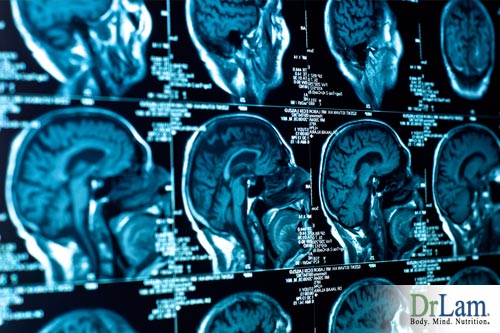 Next is the evaluation of sub-clinical hormone imbalance and the question as to whether or not this leads to clinical symptoms of fatigue and lethargy. The results are not perfectly clear. One can have high adrenaline levels and not feel fatigued, while others can be tired but have normal adrenaline blood levels. Again, presently there is no quantitative test of any kind that provides a direct and absolute correlation between the levels of any single adrenal hormonal to symptoms of fatigue with 100 percent accuracy.
Next is the evaluation of sub-clinical hormone imbalance and the question as to whether or not this leads to clinical symptoms of fatigue and lethargy. The results are not perfectly clear. One can have high adrenaline levels and not feel fatigued, while others can be tired but have normal adrenaline blood levels. Again, presently there is no quantitative test of any kind that provides a direct and absolute correlation between the levels of any single adrenal hormonal to symptoms of fatigue with 100 percent accuracy.
Based on the above, we can surmise three possible deductions:
First, that the current laboratory test is incapable of measuring sub-clinical states. In other words, laboratory studies are not useful for this situation at all and therefore should be discarded.
Second, the current test is good, but the reference range lacks sensitivity to correlate to the sub-clinical state. What is needed is to redefine the reference ranges, or lower the threshold. This is not uncommon in the medical world.
Lastly, we can surmise that such sub-clinical states do not exist because current laboratory tests are accurate enough to cover the entire spectrum of adrenal health. There is no change necessary.
Unfortunately, the medical science relied on by conventional medicine has not yet advanced to a state where one can definitively argue for and defend any one of the above three scenarios to the complete exclusion of the others. Adrenal Fatigue is not the first condition to face this challenge. Many illnesses considered invalid in the past have subsequently become validated if one examines the history of medicine. In fact, this is the norm and not the exception. Most chronic diseases, if traced to their root history, experience resistance and rejection by the mainstream medical community of that era when first introduced. This is the norm. Their full acceptance into the medical community only comes decades later. Not many decades ago, depression, fibromyalgia, irritable bowel syndrome, and chronic fatigue were also considered invalid diagnoses by conventional medicine. Today, they are accepted illnesses.
Let us take depression as an example. To qualify for a diagnosis of major depression, for example, one only has to, within a two-week period, have any five of the following symptoms that represent a change from previous function:
 Clearly none of the above nine criteria are laboratory driven or quantitative in nature. They are all subjective. Once a person has five of the symptoms, depression is diagnosed, and that becomes a medical fact. Your updated medical records will be with you for the rest of your life. Until they reach this diagnosis, a person is not considered depressed.
Clearly none of the above nine criteria are laboratory driven or quantitative in nature. They are all subjective. Once a person has five of the symptoms, depression is diagnosed, and that becomes a medical fact. Your updated medical records will be with you for the rest of your life. Until they reach this diagnosis, a person is not considered depressed.
The obvious question then is what diagnosis is given to a person who has four out of the nine criteria? Is that person normal and thus unworthy of treatment? Borderline depression would be a logical diagnosis, but this does not exist. However, not all conditions face this problem. Borderline hypertension is a valid diagnosis, and so is borderline diabetes.
Indeed the medical world is full of idiosyncrasies.
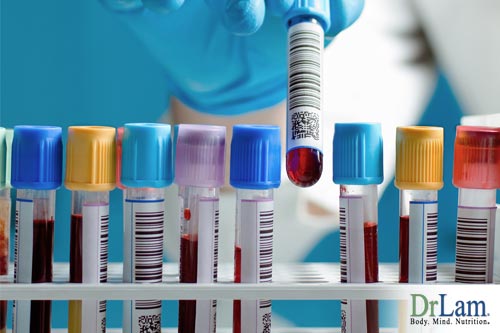 Returning to the issue of laboratory testing, it is almost a foregone conclusion that some form of laboratory test is needed to make a diagnosis among the medical community. This hypothesis itself needs to be examined. Not all conditions in medicine are quantified before they are accepted. Hundreds of accepted medical diagnoses exist and are used everyday without laboratory tests. Examples include depression, irritable bowel syndrome, tension myositis syndrome, chronic fatigue syndrome, and fibromyalgia syndrome. How are Adrenal Fatigue and Adrenal Fatigue Treatment any different?
Returning to the issue of laboratory testing, it is almost a foregone conclusion that some form of laboratory test is needed to make a diagnosis among the medical community. This hypothesis itself needs to be examined. Not all conditions in medicine are quantified before they are accepted. Hundreds of accepted medical diagnoses exist and are used everyday without laboratory tests. Examples include depression, irritable bowel syndrome, tension myositis syndrome, chronic fatigue syndrome, and fibromyalgia syndrome. How are Adrenal Fatigue and Adrenal Fatigue Treatment any different?
Because of the gross failure of serum laboratory studies in assessing adrenal function accurately at the sub-clinical state, many naturally oriented physicians advocate the use of 24-hour saliva cortisol tests as an alternative evaluation tool. In this case, one takes four saliva samples throughout the day to plot a cortisol curve. This curve is compared to that of a normal person. In most cases of severe fatigue, the cortisol curve is flat throughout the day. In other words, it does not follow the rhythmic pattern you find in normal people. However, some people can have a flat curve and be totally normal. There is currently no quantitative test with pinpoint accuracy to correlate the hormonal level against fatigue. All tests available give us only a birds-eye view at best. While this approach has some merit, it is not perfect.
Other naturally oriented physicians place their faith on a detailed and accurate history alone. To them, learning to listen to the body and its signals is a far more accurate tool in assessing adrenal health than serum or saliva laboratory testing at this time. This is not without clinical foundation. Many with weak adrenals clinically present with normal serum and saliva tests, while others can have abnormal laboratory values but be clinically asymptomatic. They have no fatigue or lethargy. Lastly, there are problems with current laboratory reference range errors, delayed sensitivity problems, and hard to reconcile clinical correlations that are built into the imperfection of current laboratory testing methodology. Until laboratory technologies improve, reliance on laboratory tests can be confusing and sometimes misleading.
Conventional medicine disagrees. According to them, the current laboratory standard is acceptable to detect all forms of adrenal illness. No test is needed specifically for mild forms of Addison’s disease because such forms do not exist.
This debate gets even more complicated the more one dwells upon the details. Within the natural medicine camp, some feel a single snapshot of saliva cortisol, if done over a 24-hour period, is sufficient. Others are of the view that saliva testing needs to be implemented serially in order to have any value, and even then, it is not absolute. The reason is simple—many people in the early stages of Adrenal Fatigue have normal saliva test results. Only by repeating the test at close intervals can clinical symptoms be correlated well with laboratory testing.
Conventional medicine’s thesis is that because of the lack of definitive tests to diagnose Adrenal Fatigue absolutely, this condition is not real and does not exist. There seems to be a parallel for patients who have classic signs of hypothyroidism clinically but their laboratory tests are normal.
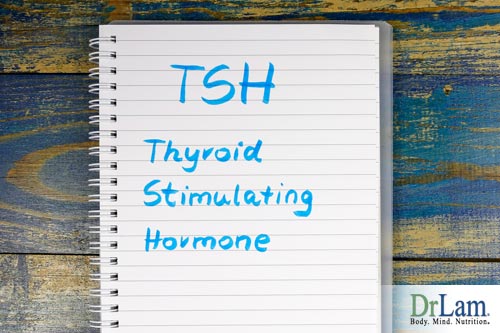 TSH is the most common test used to rule out hypothyroidism. The higher the number, the more likely hypothyroidism is present. For many decades up until late 2002, the normal range was around 0.5–5.0. This high threshold meant that many who might have been suffering from hypothyroidism clinically with normal TSH levels under 5.0 were not being treated and thus suffered unnecessarily. That range changed to 0.3–3.0 as of early 2003. Many whose results fall between 3.0 and 5.0 are now considered hypothyroid while they were considered normal before this change.
TSH is the most common test used to rule out hypothyroidism. The higher the number, the more likely hypothyroidism is present. For many decades up until late 2002, the normal range was around 0.5–5.0. This high threshold meant that many who might have been suffering from hypothyroidism clinically with normal TSH levels under 5.0 were not being treated and thus suffered unnecessarily. That range changed to 0.3–3.0 as of early 2003. Many whose results fall between 3.0 and 5.0 are now considered hypothyroid while they were considered normal before this change.
For decades, doctors told these patients all was normal and they were sent home without treatment. Such borderline hypothyroidism was at the time discarded as a valid diagnosis until recent years. The justification used is that their TSH test was normal.
Not too long ago, many endocrinologists were, in fact, denying mild hypothyroidism as a true diagnosis. The same may be happening to Adrenal Fatigue as a mild form of adrenal insufficiency. The similarity is striking. It took years of mounting patient complaints and failures of traditional clinical approaches before the scientific community admitted they were well behind the ball in diagnosing hypothyroid. Such may be the case with Adrenal Fatigue.
Even with the lowering of the TSH threshold, many forward-thinking physicians start medical treatment for hypothyroidism if one’s TSH level is above 2 as long as clinical symptoms are present. They are basing their decision on evaluating the entire clinical presentation, and less on laboratory tests.
The core difference between how conventional medicine and naturally oriented physicians see adrenal weakness comes down to how the same two separate camps of professionals interpret the data. Naturally oriented physicians tend to place more weight on clinical presentation. Hard clinical observation together with soft laboratory test results is sufficient to make the case as far as they are concerned.
Conventional medicine, on the other hand relies more on testing than on clinical presentation. Because test results do not technically meet man-made standards, Adrenal Fatigue as a diagnosis is rejected.
Both camps have the best intention at heart to do what is right. The difference lies in the lens they wear when looking at the same clinical presentation and laboratory data. Both are correct in their perspective.
All scientific endeavors evolve through a systematic process. It all starts with unanswered questions that lead to discoveries of alternative answers. From this a new theory is developed and a thesis advanced. Through research and clinical studies, such a thesis is scrutinized over time as the evidence is examined. Debate within the medical community is therefore a healthy process and a constructive one. Through this process, a faulty thesis is rejected, and a sound thesis advances. Accepted theories eventually become medical facts, which set the standard. As medical science progresses, new facts will ultimately emerge that may displace previous facts.
It usually takes several decades for new discoveries and theories to be absorbed into mainstream medicine with successful passage of clinical trials and studies. Then it is taught to medical students, and more time elapses before students mature into respected physicians and disseminate this information to the general population.
 Take the free radical theory for example. First advanced by Nobel Laureate Dr. Linus Pauling in the mid-1950s, it was not accepted by the mainstream medical community. In fact, it was outright rejected and ridiculed. The required technology to prove Dr. Pauling correct would only come 40 years later. That is when the traditional medical community started to take it seriously.
Take the free radical theory for example. First advanced by Nobel Laureate Dr. Linus Pauling in the mid-1950s, it was not accepted by the mainstream medical community. In fact, it was outright rejected and ridiculed. The required technology to prove Dr. Pauling correct would only come 40 years later. That is when the traditional medical community started to take it seriously.
Only 40 years ago, the concept that inflammation caused heart disease was a laughable concept. The thesis that a bacteria can be the most common cause of gastric ulcer, the idea that borderline diabetes is a serious condition requiring intervention early on, the thought that hormones can come in a gas form (nitric oxide) were all rejected when first presented to the scientific community. Yet today, they are universally accepted facts.
From a nutritional perspective, none is more dramatic than the abrupt reversal of vitamin D as an important vitamin after decades of fear. Until the year 2010, prescribing vitamin D in excess of the RDA (recommended daily allowance was 400 IU per day for adults between 50-70 years of age and 200 IU for adults under 50) was considered dangerous. Today, the RDA is increased to 600 IU. Most conventional physicians, however, routinely prescribe 1000 IU or more per day, well above the RDA. Those who are naturally oriented prescribe even more.
Medical knowledge is an evolving science. As knowledge explodes, what was considered fiction yesterday might well become a fact today. The good news is that with time, the truth eventually surfaces. Borderline sugar intolerance or hyperglycemia was once considered inconsequential but is now a proven serious precursor to diabetes. Borderline hypothyroidism was once ignored but is now recognized as clinically important enough to warrant early medical intervention. Borderline hypertension now is considered a serious risk factor for stroke and heart disease if the family history is positive. Modern science has indeed dispelled previous assumptions that these sub-clinical states are normal with no treatment required. Clearly, we need to increase our sensitivity to all chronic debilitating conditions for optimum health. These need to be treated very early on at first sign of any problem instead of waiting until the full-blown diseased state occurs.
According to conventional physicians, because Adrenal Fatigue is not real, supplements and vitamins for Adrenal Fatigue treatment are therefore useless, and may not be safe.
Some of the most popular supplements for Adrenal Fatigue treatment contain extracts of human adrenal, hypothalamus (a part of the brain that produces hormones), and pituitary gland. These could be harmful if not properly supervised. Taking adrenal hormone supplements when unnecessary can lead the adrenal glands to reduce output and thus prove unable to produce hormones when under stress, according to conventional physicians.
Most experienced natural medicine physicians believe that the proper use of natural supplementation is important in the recovery process, but that process should be professionally supervised for optimal results. Indeed, few would disagree that improper use of nutritional supplements can cause harm to the body, regardless of whether a person has Adrenal Fatigue or not.
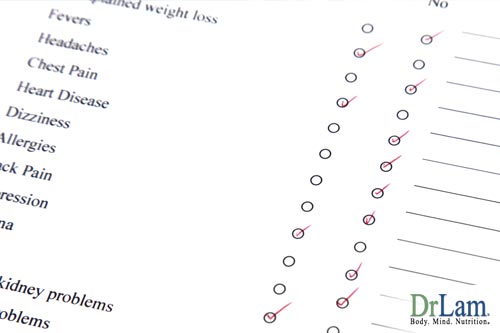 Separating Adrenal Fatigue from other syndromes with overlapping symptoms is not easy. Chronic fatigue, depression, fibromyalgia are all present with certain degrees of lethargy and loss of energy. Laboratory tests are not perfect. Wide-spread misinformation is prevalent.
Separating Adrenal Fatigue from other syndromes with overlapping symptoms is not easy. Chronic fatigue, depression, fibromyalgia are all present with certain degrees of lethargy and loss of energy. Laboratory tests are not perfect. Wide-spread misinformation is prevalent.
Time is the ultimate revealer of the truth. Unfortunately, it will take decades of further research for conventional medicine to accept Adrenal Fatigue treatment.
Those of us on the front lines who deal with patients coming in with fatigue know that the debate will eventually end. Our body is always right. As the final arbitrator, we need to learn to listen to our body, regardless of what our scientific mind tells us, or what doctors tell us. No one can argue with the body. It is always right. Whatever approach we take, we are likely to be on the right track if fatigue reduces over time clinically and a sense of calm and vibrancy returns. Likewise, we need to admit failure if clinically the condition gets worse. Generally speaking, those who learn to listen to the body when it comes to sub-clinical states will often be well rewarded.
Adrenal glands and fatigue are so intertwined and more often than not inseparable clinically and by laboratory tests, therefore, advising the patient on Adrenal Fatigue treatment is not easy. What patients need is a practical approach to improve, not theoretical discussion.
The fastest and most practical way to improve is actually quite simple. Rather than spending a lot of energy on extensive tests and debates about what the diagnosis should be, those with unexplained fatigue associated to what appears to be adrenal dysregulation clinically can undergo a trial course of natural Adrenal Fatigue treatment. While this approach may not appear scientific on the surface, it is actually a common practice in conventional medicine. For example, it is an accepted standard of care to start a trial course of antibiotic for gastric pain if one suspects gastric ulcer because the vast majority of gastric ulcers are due to bacterial infection. If this fails to bring relief, further workup can be initiated.
The key to success in this trial adrenal support approach is to employ only gentle natural compounds along with dietary and lifestyle adjustments under proper professional supervision. Bear in mind that improper supplement use can actually make things worse over time. The overall results will guide us. If one feels better with the adrenal oriented support program, the root cause logically arose from or close to adrenal dysfunction unless other factors are at play. If one does not improve, alternative root causes need to be investigated. Under proper care, the body speaks to us, one way or another, within a short time. Engaging in academic debates is great for the ego but does little to relieve pain and suffering - the ultimate mandate of the health professional. Risk and harm need to be factored into the recovery plan, and constantly monitored for feedback and clinical results.
The traditional medical approach to diagnosing chronic disease does not take into consideration their sub-clinical stages, which have reached epidemic proportions worldwide. These include borderline hypothyroidism, borderline hypertension, and borderline diabetes.
 In the case of Adrenal Fatigue treatment, clearly the threshold of science has not been reached according to conventional medicine. Current laboratory tools are considered sufficient. Symptoms tied to adrenal weakness are assigned to other syndromes with similar and overlapping clinical pictures, including depression, fibromyalgia, and chronic fatigue.
In the case of Adrenal Fatigue treatment, clearly the threshold of science has not been reached according to conventional medicine. Current laboratory tools are considered sufficient. Symptoms tied to adrenal weakness are assigned to other syndromes with similar and overlapping clinical pictures, including depression, fibromyalgia, and chronic fatigue.
Let us draw a parallel between the current rejections of Adrenal Fatigue by the same mindset insisting that fibromyalgia or chronic fatigue syndrome is not a real medical condition not too long ago. The similarity is striking. Elevating the man made arbitrary bar of what is considered science to a point that modern laboratories are unable to reach with current technology can be dangerously inept. Using this as justification to reject a condition with such overwhelmingly widespread physical debilitating symptoms only makes matters worse for the very people who need care and attention.
Theory and debate is great for the academic mind and the ego, but does little for those who suffer. Technical debate should not stand in the way of healing those in need. Simple logic points to the existence of a sub-clinical state of adrenal weakness, regardless of whether laboratory testing is currently sensitive enough to detect it. The debate of whether to call this sub-clinical state Adrenal Fatigue, adrenal burnout, adrenal exhaustion, mild adrenal insufficiency, non-Addison’s hypoadrenia, decompensatory syndrome, mind-body syndrome, or tension syndrome becomes insignificant if one focuses on the big picture: healing the patient. For the time being, we call it Adrenal Fatigue because that is the most logical name due to the close association of our understanding of adrenal function.
Regardless of the name assigned to this condition, one needs to be practical when it comes to Adrenal Fatigue treatment. One consideration is to embark on a trial course of natural adrenal support, and let the clinical results guide us forward.
They are good treatments but make sure you consult your coach before starting.
The use of birth control forces menstrual regularity and allows conventional doctors to regulate the flow and timing that is often disrupted by PCOS.
Most doctors are trained to improve symptoms the fastest way. They are not trained to build the body up from the foundation. Using glandular and adaptogen herbs, in my opinion, is not helping to improve the foundation of your body but patchwork. They do have their function at the proper time and place, but priority should always be to allow the body to self-heal first. Herbs and glandulars can help short term, but can potentially have long term issues.
You should read and learn about your condition. Print and give your doctor my article on OAT axis imbalance.